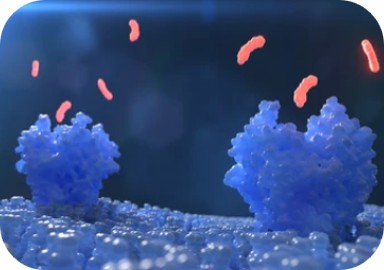Recent advancements in nanotechnology have dramatically reshaped the landscape of drug delivery. At the forefront of this transformation are peptide-conjugated dendrimers, which stand out as promising vehicles for targeted therapeutic interventions. This novel class of nanocarriers provides researchers with sophisticated tools designed to enhance the precision and effectiveness of drug administration, thereby marking a significant step forward in the realm of targeted therapies.
Dendrimers are complex, tree-like macromolecules characterized by their clearly defined structure. This unique design provides a large surface area that can be modified with different functional groups, such as peptides.
Synthesis of dendrimers involves a complex, multi-step process. It begins with the construction of the dendrimer core, followed by the deliberate conjugation of peptide sequences through carefully selected chemical reactions. These dendrimer modifications can be tailored to enhance the interactions between the dendrimers and their intended targets. For instance, by choosing peptide sequences that preferentially bind to receptors frequently overexpressed on cancer cells, researchers can engineer dendrimers that deliver chemotherapeutic agents with remarkable specificity to malignant tissues. This targeted approach may reduce collateral damage to healthy cells, subsequently minimizing systemic side effects and optimizing therapeutic outcomes. Such peptide-conjugated dendrimers significantly enhance the selectivity of drug delivery systems, particularly in targeting disease sites such as tumors.
A particularly advantageous aspect of peptide modification in dendrimers is its potential to improve the solubility and permeability of therapeutic agents. Many pharmaceutical compounds face challenges associated with poor solubility in aqueous environments, which limits their effectiveness in vivo. Peptide-conjugated dendrimers can encapsulate these hydrophobic drugs, thereby enhancing their solubility and bioavailability. Additionally, the modification of dendrimer surface characteristics through peptide conjugation enables researchers to influence how these carriers interact with biological membranes, thus improving cellular uptake and fostering therapeutic efficacy.
However, the application of peptide-conjugated dendrimers is not devoid of challenges. The intricacies of dendrimer synthesis, the stability of peptide bonds, and the risk of potential immunogenicity require careful consideration to ensure the safety and efficacy of these systems in clinical contexts. Continued research that focuses on optimizing dendrimer designs, evaluating alternative conjugation strategies, and examining long-term biocompatibility is critical for the progression of this promising technology.
In conclusion, peptide-conjugated dendrimers are paving the way for groundbreaking advancements in drug delivery, characterized by enhanced specificity and reduced side effects in therapeutic contexts. As interdisciplinary research continues to unfold the multifaceted potential of these innovative nanocarriers, we are approaching a future where targeted therapies can lead to more effective treatments for a range of diseases. The evolution of dendrimer applications in medicine is a testament to the remarkable impact of scientific innovation and collaborative efforts in the pursuit of solutions to complex health challenges.
More about CD BioSciences:





Comments